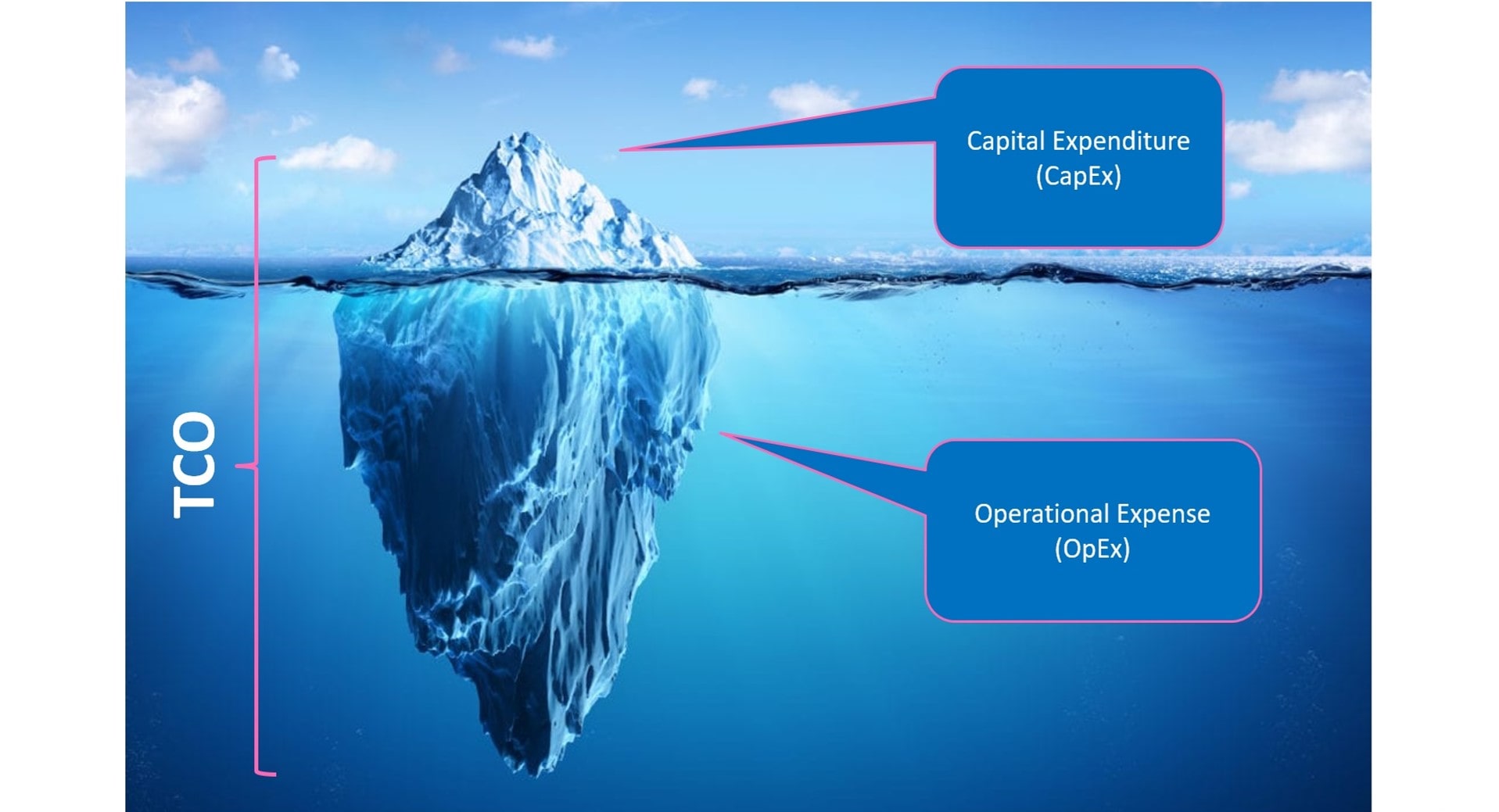The COVID-19 pandemic has forced businesses to accelerate digital adoption and this trend will not slow down in the foreseeable future. While technology has greatly aided businesses in an increasingly digital-based normal, the rapid changeover has also left businesses exposed to new challenges.
Many businesses lack a structured and sustainable IT management approach that addresses the cybersecurity, and compliance challenges digital transformation brings. To thrive in this post-COVID world, it is therefore critical to re-examine ones Total Cost of Ownership (TCO) to maximise the value IT brings to the business and minimise IT risks.
Understanding TCO
Do you know 80% of total IT costs occur after the initial purchase? (Gartner)
Investopedia defines TCO as the purchase price and the operating cost of a product. Gartner states that for IT, TCO includes hardware and software acquisition, management and support, end-user expenses, the opportunity cost of downtime, training and, other productivity losses.
Most people focus only on the upfront IT costs and neglect the other indirect key components that would add up over time. This simplistic understanding of TCO often leads to over-inflated expectations of benefits and frustrations from hidden costs.
|
 |
Importance of TCO Analysis
A TCO analysis helps businesses differentiate between short-term (purchase price) and long-term (TCO) costs of a product or service. It helps make an informed decision when selecting the right option from multiple alternatives. In general, a lower and stable TCO offers better value in the long run.
As you jump on the digital bandwagon for survival, it should not distract you from the constant need to align IT to business needs and question the ROI. Even before the pandemic, businesses that had an accurate handle on TCO were more agile and prepared for unexpected surprises and demands.
Re-examining TCO in IT Management
Technology investments have wide impact and must not be considered lightly, especially now when prudence is key. While the components of TCO may vary depending on your industry and business needs, be sure to consider the following while analysing the TCO for your IT management strategy.

|
Initial hardware and software costs
Cost reduction and agility pressures have made operational expenditures (OPEX) more favourable over capital expenditures (CAPEX). Outsourcing IT to a managed services provider makes IT spending more predictable and manageable with a subscription-based and modular IT approach. This allows for easy scaling up or down of IT, based only on what you need and use.
|
 |
Backup and recovery costs
Viewed as an insurance policy, backup is a necessary expense. Beyond the backup software cost, TCO includes ongoing maintenance, storage costs, monitoring, and testing. Cost also rises with the demand for rapid recovery. Today, many are turning to cloud backup due to its accessibility and cost effectiveness but it still takes a competent IT team to effectively execute and manage it according to ones backup and disaster recovery objectives, and budget.
|
 |
Downtime and business continuity costs
The concept of remote work has added extensive complexity to IT management and impact on TCO. Downtime can cause tremendous monetary losses and other collateral damages like data loss, loss of customer trust, and bad customer experience; which all magnifies business loss in the longer term. To fulfil service level agreements, boost customer service reliability and reduce the cost of unplanned disruptions and uncertainties from trial-and–error resolutions, the implementation of proven IT standards and frameworks, and routine preventive maintenance are important.
|
 |
Regulatory compliance cost
Keeping up with the ever-changing regulatory requirements and monitoring risk is an expensive and resource-draining critical task. TCO analysis here involves understanding and categorising the risks of non-compliance and agreeing on your preferred risk profile. Compliance must be managed as a continuous program, and not as a one-off project where issues are being responded in an ad-hoc manner. Having effective IT standard operating procedures and regular reviews are key for a long-term, proactive adherence approach.
|
 |
Cybersecurity cost
It is a challenge to internally build and maintain a cybersecurity solution that cost-effectively provides adequate, ongoing protection against sophisticated cyber attacks. The question you should ask is - Do you want to be a security company, or do you want to be a secure company? Having your own SOC is just not viable for most, due to the high costs from talents, maintenance, monitoring, etc. Managed Security provides the prefect affordable solution because you get a single, comprehensive and fully supported service, that is also modular and flexible to your unique protection needs.
|
 |
IT talent retention cost
Lastly, a common problem that businesses face in maintaining a high-performing IT function is finding and keeping skilled technology professionals. Today, the demand for IT talent far exceeds the supply and the cost of recruitment and continuous training is high. To reduce TCO, many businesses leverage on an Managed IT partner for access to technical domain experts to support when there are unexpected and ad-hoc IT emergencies, and for technology advisory.
|
In today’s challenging business environment, where spending is being scrutinised repeatedly, knowing where your ‘big buckets’ of costs are is vital. There is also a growing trend on Fixed vs Variable IT cost analysis, with more favouring the latter as it can be dialed up or down at times of need.